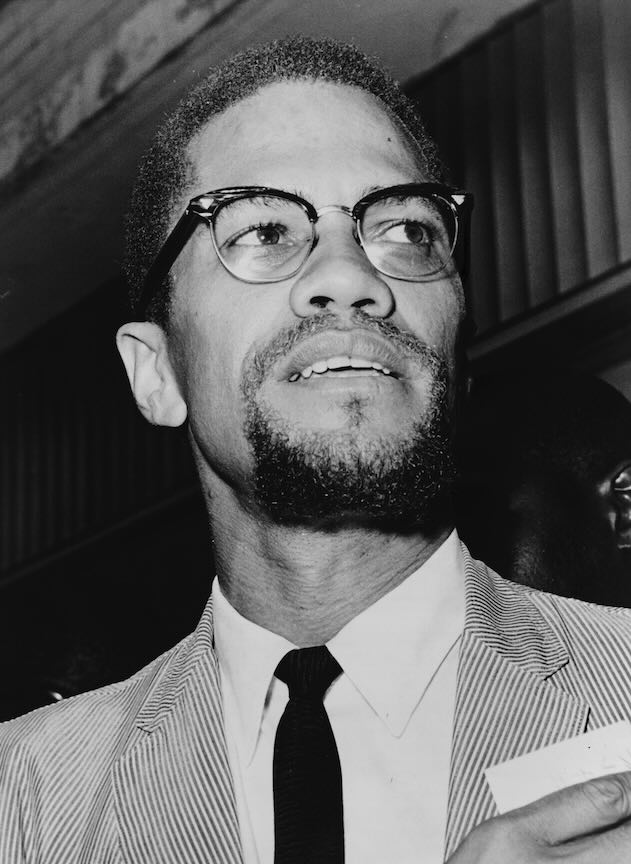1965 Malcolm X Assassinated

On February 21, 1965, Malcolm X, a Black nationalist and former leader of the Nation of Islam, was assassinated.
On February 21, 1965, Malcolm X, a prominent Black nationalist and former leader of the Nation of Islam, was assassinated while speaking at the Audubon Ballroom in New York City. His death marked the end of a transformative figure who had been a powerful voice in the fight for Black empowerment and civil rights in the United States. Born Malcolm Little in Omaha, Nebraska, in 1925, Malcolm X became involved with the Nation of Islam (NOI) while serving a prison sentence in the late 1940s. Under the mentorship of Elijah Muhammad, the leader of the NOI, Malcolm X quickly rose to prominence within the organization. He became a charismatic and controversial spokesperson, advocating for Black pride, self-sufficiency, and, at times, the separation of Black people from white society. His message, which sharply contrasted with the nonviolent approach of leaders like Dr. Martin Luther King Jr., resonated with many African Americans who were frustrated with the slow pace of racial integration and equality. In March 1964, Malcolm X broke away from the Nation of Islam after growing disillusioned with its leadership and practices. He embarked on a pilgrimage to Mecca, where he experienced a spiritual transformation that led him to embrace Sunni Islam and adopt a more inclusive view of race relations. This shift in ideology marked the beginning of his efforts to build bridges across racial lines and work towards a more global understanding of the struggle for human rights. Despite his newfound outlook, Malcolm X's split from the Nation of Islam created deep tensions between him and his former allies. He received numerous death threats, and the hostility between the two camps escalated over the following months. His assassination was the culmination of this growing animosity. On the day of his assassination, Malcolm X was preparing to deliver a speech at the Audubon Ballroom to the Organization of Afro-American Unity, a group he had founded to promote Black identity and address civil rights issues. As he began his address, a commotion broke out in the audience, distracting his security detail. Amid the chaos, three gunmen rushed the stage and fired multiple shots at Malcolm X. He was struck 21 times and was pronounced dead shortly after arriving at Columbia Presbyterian Hospital. He was 39 years old. Three men, all members of the Nation of Islam, were later arrested and convicted for the murder. However, questions and controversies surrounding the true motives and the extent of involvement of others, including potential government complicity, persisted for decades. The case was reopened in recent years, leading to the exoneration of two of the men who were convicted. Malcolm X's assassination sent shockwaves through the civil rights movement and the Black community. His death was a profound loss for those who admired his courage, eloquence, and commitment to the cause of Black liberation. Over time, Malcolm X's legacy has been reassessed, with many recognizing the significant impact he had on the struggle for racial justice in America. His autobiography, co-written with journalist Alex Haley, remains a seminal work, offering insight into his life, his evolving beliefs, and his enduring influence on future generations of activists. Malcolm X's life and death continue to inspire and provoke debate, highlighting the complexities of his character and the broader fight for civil rights in the United States. |
